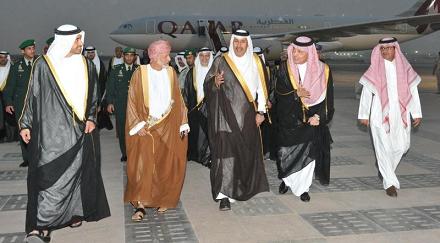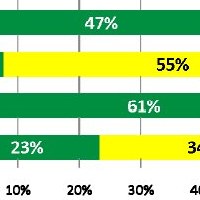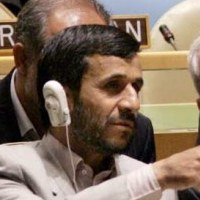![]()
Tue, April 12, 2011 | Rubin Report | By Barry Rubin

Saudi Minister of Foreign Affairs Prince Saud Al-Faisal Receives GCC Foreign Ministers. (Photo: Saudi Ministry of Foreign Affairs; April 03, 2011)
Saudi Arabia, Gulf States: Iran Is Attacking Us; Obama Administration: Excuses, Excuses!
How sadly ironic. A few years ago, the two previous U.S. presidents were trying to get Gulf Arab states to do more to foster an Arab-Israeli peace settlement and to stand up against Iran. They didn’t respond very much. Now they are ready for the battle and the current U.S. government is at best neutral and at worst on the other side!
In an unprecedented statement, the Gulf Cooperation Council (GCC, consisting of Bahrain, Kuwait, Oman, Qatar, Saudi Arabia, and the United Arab Emirates) has condemned Iran for trying to overthrow them. Tehran has been at it since 1979 but this is the first time that these countries have been so bold.
Why? Because the assault — especially in Bahrain and Saudi Arabia — has never been so blatant and threatening.
Among the terms used in the statement about Iran were:
“flagrant interference,” destabilizing their countries, “deeply worried about continuing Iranian meddling,” “violating the[ir] sovereignty,” “irresponsible,” and “Iran’s interference in Bahrain’s internal affairs, in violation of international conventions and rules of good neighbourliness.”
Meanwhile, Iran is threatening Saudi Arabia, which the Iranian parliament’s foreign affairs and national security committee said, “should know it’s better not to play with fire in the sensitive region of the Persian Gulf.”
The Saudi government responded that this was an “irresponsible” statement containing “void allegations and blatant offense against the Kingdom of Saudi Arabia.” And, said the Saudi version of parliament, Iran’s position “fuels sectarianism,” a codeword for pitting Shias against Sunni Muslims. Iran must “stop these hostile policies and respect the rules of good neighbourliness … so as to preserve the security and stability in this region which is key for the entire world.”
The GCC’s secretary-general, Abdullatif al-Zayani, condemned “Iran’s meddling in the internal affairs of GCC countries” that “threatened security and stability in the region.”
Where is U.S. policy in all of this? Nowhere at all. It is not siding with the GCC. At best, the United States is neutral between the two sides. Such a position is a terrible mistake. The new development is that the U.S. government has stopped criticizing Saudi Arabia and Bahrain. But it hasn’t started helping them.
If Washington doesn’t support the GCC against Iran, who will? And the expansion of Iranian influence — on the eve of Tehran getting nuclear weapons — is catastrophic for U.S. interests.
Foreign Ministers of GCC Condemns Iranian Interference
Publishing Date: Mon, April 04, 2011
Riyadh | Rabi Al-Akhir 29, 1432 | April 03, 2011
The Ministerial Council of the Gulf Cooperation Council held a special session at the headquarters of the General Secretariat of the Council in Riyadh, under the chairmanship of Sheikh Abdullah bin Zayed Al Nahyan, Minister of Foreign Affairs of the United Arab Emirates, the current chairman of the Ministerial Council and in the presence of Sheikh Khalid bin Ahmed bin Mohammed Al Khalifa, Minister of Foreign Affairs of the Kingdom of Bahrain, Prince Saud al-Faisal, Minister of Foreign Affairs of the Kingdom of Saudi Arabia, Yousuf bin Alawi bin Abdullah, Minister Responsible for Foreign Affairs of the Sultanate of Oman, Sheikh Hamad Bin Jassim Bin Jabr Al Thani, Prime Minister and Minister of Foreign Affairs of the State of Qatar, Sheikh Dr. Mohammad Sabah Al-Salem Al-Sabah, Deputy Prime Minister and Minister of Foreign Affairs of the State of Kuwait. The meeting was attended by Dr. Abdul Latif bin Rashid Al Zayani, the Secretary-General of the Cooperation Council for the Arab Gulf States.
The Ministerial Council reviewed the latest developments in the region, and expressed deep concern for the continuation of Iranian interferences in the internal affairs of the GCC countries through conspiracy against their national security and spreading division and sectarian strife among their citizens in violation of their sovereignty, independence, the principles of good neighborliness, international norms and laws, the Charter of the United Nations and the Organization of Islamic Conference.
In this regard, the council expressed its condemnation of Iran’s blatant interference in the affairs of the State of Kuwait by planting spy networks on its territories to harm the security, stability and the interests of its citizens. Paying tribute to the efficient security services in Kuwait, the council emphasizes the support of the GCC countries for all actions taken by the State of Kuwait for the protection of its national security, on the basis of the principle of the interdependence of the collective security of the GCC countries.
The Ministerial Council welcomed the return of calm and stability to the Kingdom of Bahrain, praising the wisdom of its leadership and the loyalty of the people of Bahrain, Stressing that the Kingdom of Bahrain has the necessary ability and wisdom to deal with domestic issues, developments and requirements in order to achieve its security, stability and prosperity. The Ministerial Council strongly condemned the Iranian interference in the internal affairs of the Kingdom of Bahrain, which is a violation of international conventions, and the principles of good neighborliness.
The Council reaffirms the legitimacy of the Peninsula Shield forces presence in the Kingdom of Bahrain upon its request, based on the Statute of the Council of cooperation, and the texts of the joint defense agreement among the GCC countries, which forms the legal basis to do so.
In the same context, the Ministerial Council denounced the false accusations contained in the irresponsible statement issued by the Committee on National Security and Foreign Policy of the Iranian Shoura Council on the Kingdom of Saudi Arabia and it considered it as a hostile stand and provocative interference in the internal affairs of the GCC countries.
The Council called on Iran to stop these policies of aggression and to fully comply with the principles of good neighborliness, mutual respect and international laws and conventions in order to ensure the maintenance of security and stability in this important region for the whole world.
With regard to developments of the situation in the Republic of Yemen, the Council expressed its deep concern at the deteriorating security situation and the state of division in Yemen to the detriment of the interests of its citizens and their economic and cultural gains. The Council calls on the interested parties in Yemen to give priority to the national interest and to quickly return to the table of national dialogue to agree on national goals and needed reforms, leading to a comprehensive agreement which restores public social peace and provides the Yemeni people with the desired reform and stable, secure and decent life. The council stressed its respect for the will and choices of the Yemeni people in order to preserve the unity of Yemen and safeguard its stability, security and national gains. The GCC states have agreed to make contacts with the Yemeni government and opposition through ideas to overcome the status quo.



 RSS
RSS










#SaudiArabia, Gulf States: #Iran Is Attacking Us; Obama Administration: Excuses, Excuses! | #GCC #tcot http://j.mp/dGaiek
Saudi Arabia, Gulf States: Iran Is Attacking Us; Obama Administration: Excuses, Excuses! | Middle Ea http://fb.me/OdmzeYcX
RT @CrethiPlethi: #SaudiArabia, Gulf States: #Iran Is Attacking Us; Obama Administration: Excuses, Excuses! | #GCC #tcot http://j.mp/dGaiek
#SaudiArabia, Gulf States: #Iran Is Attacking Us; Obama Administration: Excuses, Excuses! | #GCC #tcot http://j.mp/dGaiek
RT @CrethiPlethi: Saudi Arabia, Gulf States: Iran Is Attacking Us; Obama Administration: Excuses, Excuses! | Middle Ea http://fb.me/OdmzeYcX
RT @CrethiPlethi: #SaudiArabia, Gulf States: #Iran Is Attacking Us; Obama Administration: Excuses, Excuses! | #GCC #tcot http://j.mp/dGaiek
RT @CrethiPlethi: Saudi Arabia, Gulf States: Iran Is Attacking Us; Obama Administration: Excuses, Excuses! | Middle Ea http://fb.me/OdmzeYcX